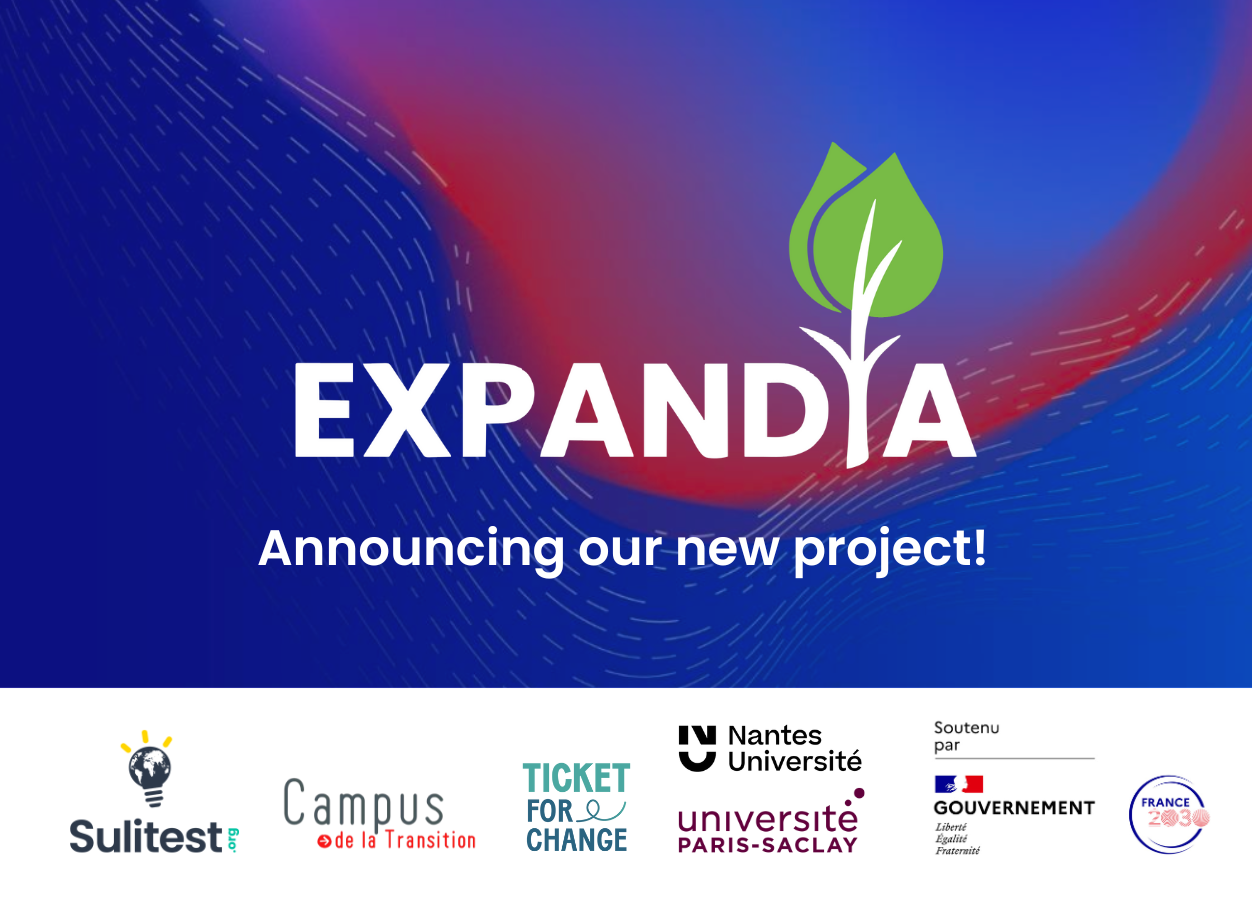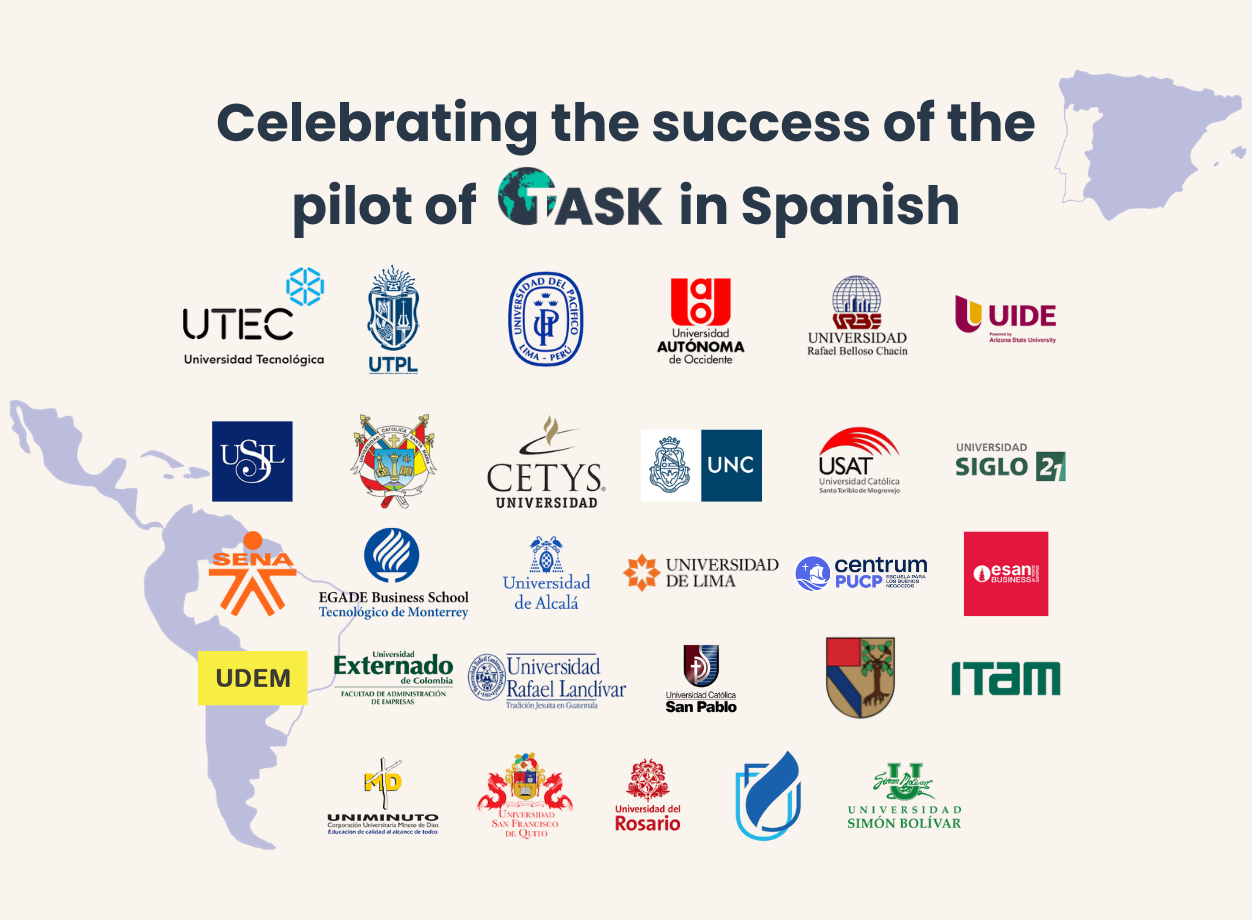
July 2017: Sulitest at the High Level Political Forum

Our Mission
The primary mission of the Sulitest Association is "to provide and develop a tool to ensure that current and future decision makers are sufficiently aware of sustainability challenges to make informed and effective decisions and to collectively build a sustainable future." Developed as a concrete implementation of the Higher Education Sustainability Initiative (HESI) and launched at the 2012 United Nations Conference on Sustainable Development (Rio+20), Sulitest presented its first progress report as a founding act at the UNESCO World Conference on Education for Sustainability. The end of the UN Decade of Education for Sustainable Development (DESD) and the establishment of the post-2015 agenda in November 2014 in Nagoya.
Does the Sustainability Literacy Test help massify sustainability acculturation in higher education?
Sulitest offers an online training and assessment tool called The Sustainability Literacy Test. This tool is available to higher education institutions and other non-university organizations to raise awareness of sustainability and to assess the sustainability literacy of their students, staff and other stakeholders.
After a pilot phase (2014-2016), Sulitest reached an important milestone with the launch of its new platform in September 2016. Building on the feedback from its community, this new version is more user-friendly, equipped with a learning mode, a new matrix to ensure a systemic view and has been deployed beyond academia to businesses and organizations.
But the most important change is the alignment of the tool with the Sustainable Development Goals framework. As such, Sulitest has become an active contributor to the 2030 Agenda for Sustainable Development. This report highlights Sulitest's contribution for the first academic years (2016-2017) of integrating the SDG framework into the initiative.
Two main contributions are highlighted: first, as each question is linked to one or more of the SDGs, the Sulitest results map the current awareness of the challenges addressed by the SDGs; second, a partnership with UN DESA was signed to launch a specialized module to educate citizens on the global framework of the Sustainable Development Goals and improve their ability to contribute to the global agenda.
Because the Sulitest is chosen by a variety of candidates in different contexts, it can be mined for data to map the current level of sustainability acculturation and track progress.
The Numbers
Since its inception (pilot version), 61,667 candidates from 612 universities in 57 countries have taken the Sulitest as of July 2017. The topic matrix and format were changed in September 2016 to align with the SDG framework, so statistical consolidation between the pilot phase and the current version is not possible.
The mapping of global awareness on the SDGs conducted in this report is therefore based on a sample of 16,575 applicants from 170 universities in 31 countries who participated in Sulitest between September 2016 and July 2017, with an average score of 55% of expected responses. This sample will grow as more universities and organizations use Sulitest in the future and help refine this first international survey on awareness of the Sustainable Development Goals.
Four main groups identified:
- A first group more aware (average scores > 60%): SDG2 Zero Hunger; SDG 8 Decent Work and Economic Growth; SDG 11 Sustainable Cities and Communities; SDG14 Life Under Water; SDG15 Life on Land and SDG16 Peace and Justice, Strong Institutions.
- A second group with average scores of 58 and 57% for SDG4 Quality Education and OBD17 partnerships for the goal.
- A third moderately aware group (between 46 and 53%): SDG1 No Poverty; SDG5 Gender Equality; SDG6 Clean Water and Sanitation; SDG7 Affordable and Clean Energy; SDG9 Industry, Innovation and Infrastructure; SDG10 Reduced Inequality; SDG12 Responsible Consumption and Production and SDG13 Climate Action.
- Finally, SDG3 Wellness and Health is clearly associated with a lower level of awareness in our sample, with an average score of 34%, which calls for more urgent initiatives in terms of education and awareness to achieve this goal.
How important are these metrics?
The trends were then used to map the agenda for the next edition of the High Level Political Forum (HLPF ): the main platform responsible for monitoring and reviewing the Sustainable Development Goals. The results show a steady increase in awareness of the themes identified for the 2017-2019 agenda, confirming the fact that the HLPF reviews the most urgent SDGs in terms of average awareness.
Finally, the focus is on the specific SDGs discussed at FPHN 2017 and regional trends are displayed on the level of awareness of the challenges covered by the SDGs and the ways in which they are connected to local contexts (using local issues) are explored.
The results of this mapping call for the development of initiatives to raise awareness of each challenge covered by the SDGs in order to achieve an equally high level of awareness across the entire scope.
Sulitest's second major contribution highlighted in this report is the launch of a specialized module on the Sustainable Development Goals framework and process. This module was created by UN DESA to empower citizens to contribute to the global agenda by increasing their knowledge of how the Sustainable Development Goals work, what they cover, who is responsible for their implementation, etc.
The results of the first sessions are presented at the end of this report. They show that the average scores are higher for some of the Sustainable Development Goals than for the overall framework, linkages and processes. This calls for using this module to train citizens on these dimensions.
Momentum is building with this first edition that will be continuously improved to empower people towards the 2030 agenda. We hope you enjoy reading this report and that it will enlighten you on how to contribute to the global agenda and achieve the goals!
You can find the report here: HLPF2017 Report












